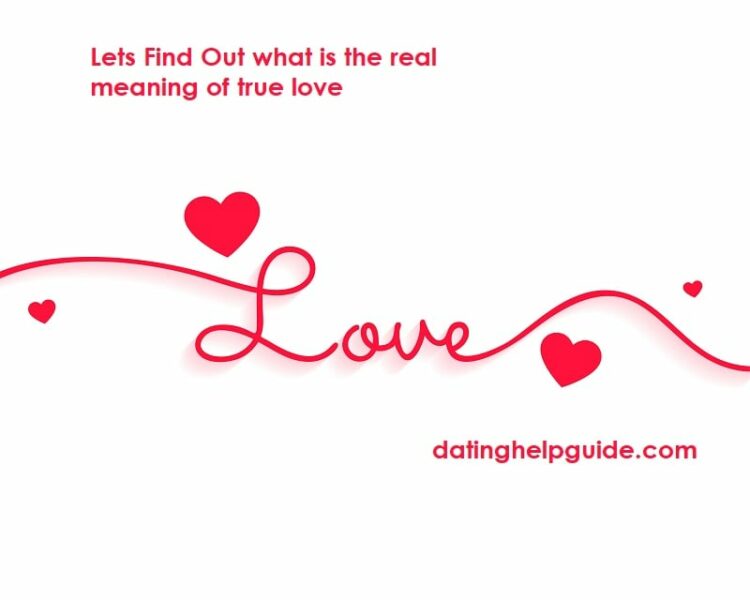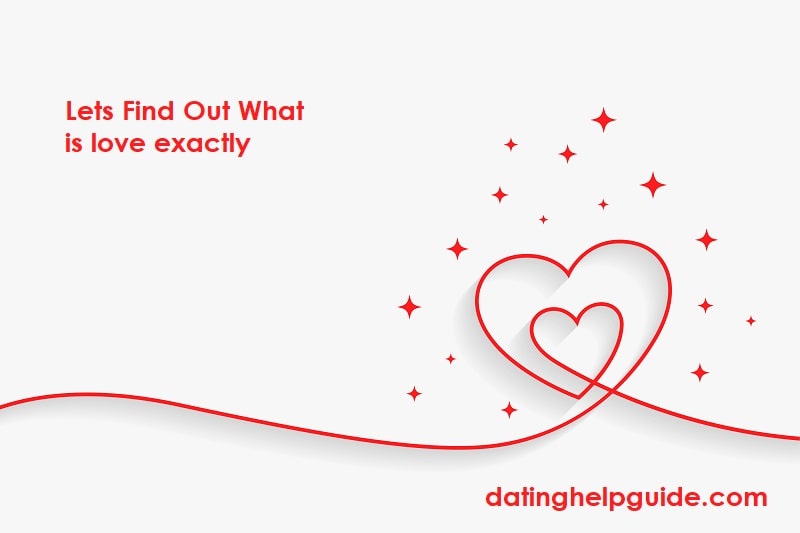whst is love Meaning
Inseparable, passionate, and commitment are some of the emotions and behaviors associated with Love. Care, closeness, protectiveness, attraction, affection, and trust are involved in it. Love can change over time and can be different in intensity.
It is associated with a wide range of positive emotions, including happiness, excitement, life satisfaction, and euphoria, which can also result in negative emotions such as jealousy and stress. Even though it is one of the most studied behaviors, it is still not fully understood.
Love is most likely influenced by both biological drives and cultural influences, which is why researchers debate whether Love is a biological or cultural phenomenon. While hormones and biology are essential, the way we express and experience love is also influenced by our conceptions of Love.

What is love exactly?
We all have our definition of Love. To some, Love is the feeling of attraction and lust. To some, Love is a feeling that you will never get tired of. To some, Love is a feeling that you will never get tired of. But what about true Love?
The idea of being in Love is beautiful, but its reality can be brutal to define. What does it mean to be genuinely in Love? Is there such a thing as too much Love? The truth is that Love can be confusing and complicated. It’s not always easy to know if you’re in Love with someone or just fascinated with them.
What are the 4 types of love?
I’m sure you’ve heard it a million times before – “love is an action, not a feeling.” And this is true. But it’s also completely wrong. Love is an emotion. It’s a feeling. And it’s one of the most powerful emotions we can experience in our lives.
But when we think about Love, we often only think about the emotion – not the action. We think about what Love looks like and how it feels, but we don’t think about the activities that make Love possible.
Here are four types of Love
- Eros: erotic, passionate love.
- Philia: love of friends and equals.
- Storge: love of parents for children.
- Agape: love of mankind.
How do you explain love?
Being in Love means being happy with your partner, admiring them, and feeling motivated to be a better person. A relationship goes beyond physical attraction when you are in Love. It is happy with the idea of two people sharing time. If you are in Love, you are driven to care for your particular person.
There are many benefits to being in Love. One of the main ones is that it will make your life more meaningful. Love can make you feel important and valued. Love is a positive experience that can lead to feelings of happiness, pride, and satisfaction. There are other benefits to being in Love as well. Being in Love allows you to express your feelings, and it helps you be more confident and comfortable with your partner.
Being in Love also helps you to develop a sense of self-awareness. When you are in Love, you have the opportunity to examine yourself and find out who you are as an individual.
what is the real meaning of true love?
Love can be an intense, passionate emotion that is both rewarding and exhilarating. Some people feel a deep sense of euphoria when they are in Love. On the other hand, it can also be stressful and disappointing. Most people find that Love changes over time, and some say that Love is one of the most important human emotions. Despite being the least understood, people spend a lot of time talking about it.
A few examples of the ways that culture influences love include:
- Romantic films and books help many young adults think about what kind of relationship they want to have.
- In some cultures, it is not acceptable to date someone younger than yourself.
- In other cultures, it is acceptable to date people from the same ethnic background.
- In some cultures, love is portrayed as a way of uniting two people who have different socioeconomic backgrounds.
How Do You Know?
Researchers have identified two distinct kinds of romantic Love: liking and loving. Romantic Love is made up of three elements: caring, desire, and commitment. Liking someone is different than loving them. Loving someone is other than enjoying them.
Attachment: You need to be with another person, and you desire physical contact and approval.
Caring: Valuing the other person’s happiness and needs as much as your own
Intimacy: When you share your private thoughts, feelings, and desires with the other person.
According to this romantic love view, Rubin developed two questionnaires to measure these variables, known as Rubin’s Scales of Liking and Loving. While people tend to see people they like as pleasant, Love is marked by being devoted, possessive, and confiding in one another.

Types of Love
Different forms of Love are not all the same. Psychologists usually describe the different kinds of Love that people may experience.
These types of Love include:
Friendship:
This type of Love involves liking someone and sharing some intimate moments with them.
Infatuation:
This form of Love involves intense feelings of attraction without a sense of commitment; it can often occur early in a relationship and may deepen into more lasting Love.
Passionate Love:
Intense feelings of longing and attraction mark this type of Love, and it often involves an idealization of the other person.
Compassionate/companionate love:
Trust, affection, intimacy, and commitment are some of the qualities of this form of Love.
Unrequited Love:
When one person loves another who doesn’t reciprocate those feelings, that’s a form of Love.
Is Love Biological or Cultural?
Some researchers think that Love is a primary human emotion similar to happiness or anger, while others think it’s a cultural phenomenon that arises due to social pressures and expectations.
It’s a part of human nature to look for Love. People think about, experience, and display romantic Love in different ways due to culture.
How to Practice Love
There is not a single way to practice Love. Every relationship is different, and each person has their history and needs. Showing Love to the people you care about is one of the things that can be done.
- Be willing to be vulnerable
- Be willing to forgive
- Be willing to apologize when you make a mistake.
- Let them know that you care
- Listen to what they have to say
- Prioritize spending time with the other person
- Reciprocate loving gestures and acts of kindness
- Recognize and acknowledge their good qualities
- Share things about yourself
- Show affection
- Show unconditional love
What are the Impact of Love
Love, attachment, and affection can influence the quality of life and well-being. There have been links between loving relationships and other things.
- Lower risk of heart disease
- Decreased risk of dying after a heart attack
- Better health habits
- Increased longevity
- Lower stress levels
- Less depression
- Lower risk of diabetes
Tips for Cultivating Love
Deep levels of trust, commitment, and intimacy are the hallmark of lasting relationships. There are several things you can do to help cultivate loving relationships.
- Try loving-kindness meditation. Loving-kindness meditation (LKM) is a technique used to promote self-acceptance and reduce stress, but it has also been shown to promote a variety of positive emotions and improve relationships.
- Communicate. The needs of everyone are different. Talking about your needs and your loved one’s needs is the best way to make sure that they are met. Showing that you care, making them feel special, telling them they are loved, and doing things for them are some of the ways to help another person feel loved.
- Tackle conflict in a healthy way. It means that people are avoiding an issue rather than discussing it, and never arguing is not necessarily a sign of a healthy relationship. Rather than avoiding conflict, focus on figuring out the issues in ways that are healthy in order to move a relationship forward in a positive way.
Potential Pitfalls
Shakespeare said that the course of Love was never easy. No relationship is perfect, and there will always be problems, conflicts, and misunderstandings that can cause distress or heartbreak. Love can be accompanied by several negative feelings and is associated with a host of positive emotions.
Some of the potential pitfalls of experiencing Love include:
- Anxiety
- Depression
- Increased stress
- Jealousy
- Obsessiveness
- Possessiveness
- Sadness
Negative emotions associated with Love can become problematic if they interfere with either person’s ability to function normally, and relationship counseling can be helpful in those situations.
History of Love
Love has become the subject of science in recent times. Sigmund Freud said in the past that the study of Love was left to the creative writer to depict for us the necessary conditions for loving. There were early explorations into nature and reasons for the Love that drew a lot of criticism.
The U.S. went through a period during the 1970s. Researchers were studying Love’s work was derided as a waste of taxpayer dollars by Senator William Proxmire. Despite early resistance, research has shown the importance of Love in both child development and adult health.
Recommended Reading: How to recover zoosk account Read Here
Recommended Reading: how to delete pof account Read Here
Recommended Reading: How to cancel pof subscription paypal Read Here
